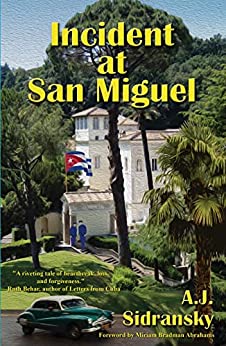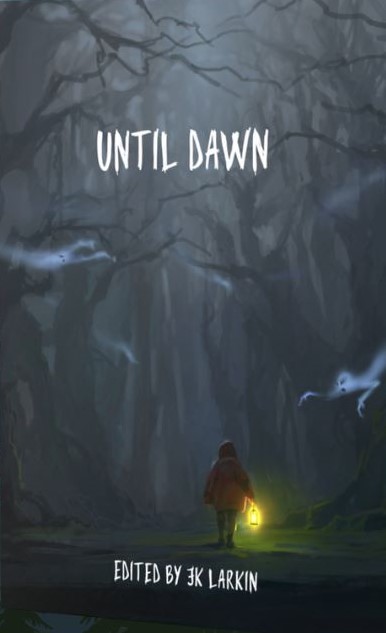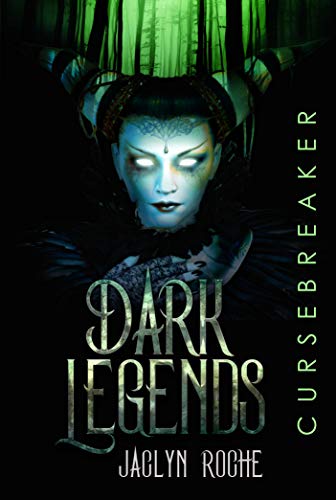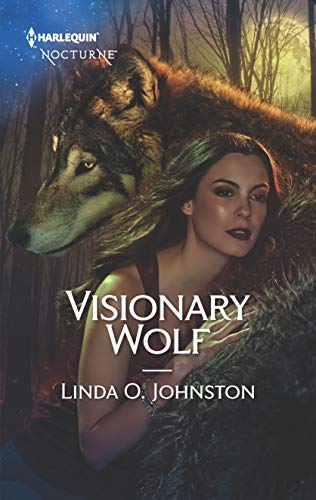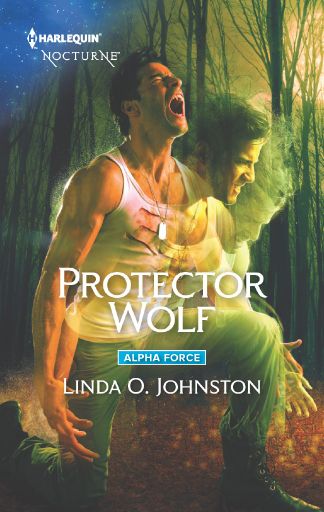Are you a Storyteller?
August 26, 2015 by A Slice of Orange in category Archives tagged as OCCRWA Online Class, Online Class, Shannon Donnelly, StorytellingAuthor Shannon Donnelly is stopping by today to talk about storytelling.
http://occrwa.org/classes/sept-class-storytelling-for-writers/
Her latest Regency romance, Lady Chance, is just out on Amazon.com. In addition to her Regency romances, she is the author of the Mackenzie Solomon, Demon/Warders Urban Fantasy series, Burn Baby Burn and Riding in on a Burning Tire, and the SF/Paranormal, Edge Walkers. Her work has been on the top seller list of Amazon.com and includes the Historical romances, The Cardros Ruby and Paths of Desire.
Some sweeping generalizations and celebrating stereotypes:
August 24, 2015 by A Slice of Orange in category ArchivesCopy line on movie ad (no, I can’t remember the title) with armed woman: Wife. Mother. Hero.
Why is a women defined by her relation to others? Would any man be described as Husband. Father. Hero.? I don’t think so. More like: Explorer. Visionary. Hero.
It’s all about what he does, who he is. Hers is about who she is connected to. That’s why women traditionally have an honorific that links them to their male partner: Mrs. Or lack of partner: Miss. Vs men, who are just Mr. Their status as a partner is deemed irrelevant.
For instance: a man does not need to be reminded to put his oxygen mask on first. His default is to think of himself first, others later. And he expects others to think the same way—to first take care of themselves, then perhaps consider others. That may be why he doesn’t thank you (you female person) for your selfless act. He thinks you’re crazy. Or stupid. Or both. Or maybe just trying to ingratiate yourself with him, as he tends to think hierarchically, so sees favors in a transactional manner. Not that a man isn’t capable of a selfless act, it’s just an unlikely part of his daily routine.
Women often think of others first, themselves last. For many that’s their default (yes, even if they’re not mothers). And they expect others to think the same way. And of course they (female people) take it personally (perhaps with a long-suffering sigh) when they discover there’s no parity, and they’re not very high on anyone else’s list. Perhaps even more irritatingly, they may be thought of as being an idiot for taking care of others and not bothering to take care of themselves.
Each sex is ‘modeling’ behavior that the other guy just isn’t picking up. Neither is exactly right, but not entirely wrong, either. And it doesn’t align.
Men tend to see things hierarchically, competitively, with winners and losers, while women tend to be more collegial and consensus driven, focusing on making something work. (Hey, my title promised “Some sweeping generalizations and celebrating stereotypes,” don’t say I don’t deliver!). Deborah Tannen’s Talking 9 to 5 offers some great stories of how these different basic assumptions can create miscommunication, misunderstanding and problems.
In many cultures, women traditionally have had little to no direct power and have had to work with indirect power: influence, relationships, connections, being liked, finding people to partner with. For a woman, helping others, doing favors, etc. is often a way of establishing friendship and usually inspires thanks, gratitude and likely a return favor in response—if the recipient is a woman.
But if the recipient is man, he may well see the gift as an effort to curry favor, confirming his status as the superior: the one to whom gifts and honor are due. Thanks are not necessary and no return gift would ever be given, as that would mean Giver and Givee were on the same level, which is not an acceptable idea when a hierarchy has just been established to Givee’s satisfaction!
Women may view support as a circular, mutually beneficial experience. For men, it is likely more linear, a bottom up effort to propitiate and curry favor of the leaders—who may then have an obligation to protect their underlings. Like a feudal lord getting his due from his dependents, he will have to try to stave off the barbarian hordes if they show up, or build a walled city to protect them, but he’s not partners with his serfs.
You can see how misunderstandings and disappointments might abound!
And why romance writers and romance readers are a necessary ingredient in our lives….
The Power of Emotion by Connie Vines
August 13, 2015 by A Slice of Orange in category Archives tagged as A Slice of Orange, Cajun Romance, Connie Vines, Emotion, H.O.L.T. Medallion, Native American Romance, Rodeo Romance, Writing Emotion|
synonyms:
|
|
synonyms:
|
|
Blog.
Please stop by next month.
 |
| Fall Release: BWL, Ltd. |
 |
| Novella, BWL, Ltd., current release |
Cinderella’s got new glass slippers: My Kindle Scout Experience Part 4 by Jina Bacarr
August 11, 2015 by A Slice of Orange in category Writing tagged as Amazon, Cinderella, Civil War, Civil War 150, Confessions of a Podcast Goddess, glass slipper, historical, Kindle Press, kindle scout, new release, PR, romance, time travel(You can read my previous posts about my experience with the Kindle Scout program by clicking on Part 1 , Part 2 and Part 3.)
Glass slippers don’t last forever…
But Kindle e-Books do.
So when Cindy discovered her treasured glass slippers had a crack in them…ow! It was time to get a new pair.
And that’s what’s been happening in publishing. It’s time to embrace new and different ways of getting our books to readers. That’s where the Kindle Scout program fills the gap. As I’ve discussed in previous posts, it’s been an amazing journey for me since I started my campaign with LOVE ME FOREVER, my Civil War time travel romance.
Last week I danced in my slippers when LOVE ME FOREVER went on sale.
Amazon sent me an email with the screenshots, showing LOVE ME FOREVER PR. My book was in the first slot on page one.
I’ve been blogging, too. Check out my posts on www.jinabacarr.wordpress.com
Facebook Launch Party
The Kindle Scout Authors did a 3-hour Facebook party. It was amazing…you can read all the comments and see what happened here: https://www.facebook.com/events/1755873821306210
Time travel is my favorite genre, so I was thrilled to hit the Kindle e–Books>Romance>Time Travel Top 100 list several times. Here’s a graphic I made:
But most gratifying to me are the reviews:
“This is one of the best time travel historical novels I have ever read. I was hooked from page one. The descriptive scenes of the Civil War battles are so realistic that you find yourself imagining you are actually on the battlefield. I highly recommend this book.”
“Gripped me from the first page and wouldn’t let go until I finished the book HOURS later.”
“Rich in history and social issues, Love Me Forever is both deep and emotionally compelling. Another fine read from a Kindle Scout winner.”
=============
What’s next for me? I’m writing the sequel to LOVE ME FOREVER, “Love Me Always,” where we meet up with the offspring of the one of the heroines and send her off on her own time traveling adventure!
Thanks for coming along with me on my journey.
~Jina
Website: www.jinabacarr.com
Blog: www.jinabacarr.wordpress.com
================
RWA National Retrospective
August 6, 2015 by Linda O. Johnston in category Pets, Romance & Lots of Suspense by Linda O. Johnston, Writing Conferences tagged as 2015 RWA National Conference, A Barkery & Biscuits Mystery, A Superstition Mystery, An Alpha Force Harlequin Nocturne, Harlequin, Linda O. JohnstonI’ve been going to the RWA National Conferences frequently for quite a few years now. They always seem fun and informative. These days, there is so much to learn about changes in how to publish as well as the entire publishing industry. The largest traditional publishers keep merging. Smaller publishers appear frequently and some are quite successful.
Then there’s the whole nearly-new world of successful self-publishing. Plus, the term “hybrid” was used a lot at the conference, meaning it’s good and potentially helpful for an ongoing career for a writer to both traditionally publish and self publish.
So, I attended workshops and panels, including my own panel with other mystery authors who also write romance, about how our careers pre-writing helped us with our writing as well. I saw my agent and my Harlequin editor. I went to the Meet-and-Greets for the two Harlequin series I write for and learned about what was going on. And I of course attended the always delightful Harlequin party.
I wound up staying in an overflow hotel rather than the main conference hotel, and the one I was in was horrible, unfortunately. It was being remodeled. My room was dark at night with inadequate lights. Cleaning was iffy. But at least it was near the conference hotel.
Next year RWA National will be in our backyard: San Diego. Will I attend?
Sure!
www.LindaOJohnston.com BITE THE BISCUIT, A Barkery & Biscuits Mystery
Affiliate Links
A Slice of Orange is an affiliate with some of the booksellers listed on this website, including Barnes & Nobel, Books A Million, iBooks, Kobo, and Smashwords. This means A Slice of Orange may earn a small advertising fee from sales made through the links used on this website. There are reminders of these affiliate links on the pages for individual books.
Search A Slice of Orange
Find a Column
Archives
Featured Books
DARK LEGENDS: CURSE BREAKER
Kalissandra Doe has a to-do list worthy of the reincarnated goddess she could be.
More info →VISIONARY WOLF (Alpha Force)
Can she love the wolf…
Inside the man?
Newsletter
Contributing Authors
Search A Slice of Orange
Find a Column
Archives
Authors in the Bookstore
- A. E. Decker
- A. J. Scudiere
- A.J. Sidransky
- Abby Collette
- Alanna Lucus
- Albert Marrin
- Alice Duncan
- Alina K. Field
- Alison Green Myers
- Andi Lawrencovna
- Andrew C Raiford
- Angela Pryce
- Aviva Vaughn
- Barbara Ankrum
- Bethlehem Writers Group, LLC
- Carol L. Wright
- Celeste Barclay
- Christina Alexandra
- Christopher D. Ochs
- Claire Davon
- Claire Naden
- Courtnee Turner Hoyle
- Courtney Annicchiarico
- D. Lieber
- Daniel V. Meier Jr.
- Debra Dixon
- Debra H. Goldstein
- Debra Holland
- Dee Ann Palmer
- Denise M. Colby
- Diane Benefiel
- Diane Sismour
- Dianna Sinovic
- DT Krippene
- E.B. Dawson
- Emilie Dallaire
- Emily Brightwell
- Emily PW Murphy
- Fae Rowen
- Faith L. Justice
- Frances Amati
- Geralyn Corcillo
- Glynnis Campbell
- Greg Jolley
- H. O. Charles
- Jaclyn Roché
- Jacqueline Diamond
- Janet Lynn and Will Zeilinger
- Jaya Mehta
- Jeff Baird
- Jenna Barwin
- Jenne Kern
- Jennifer D. Bokal
- Jennifer Lyon
- Jerome W. McFadden
- Jill Piscitello
- Jina Bacarr
- Jo A. Hiestand
- Jodi Bogert
- Jolina Petersheim
- Jonathan Maberry
- Joy Allyson
- Judy Duarte
- Justin Murphy
- Justine Davis
- Kat Martin
- Kidd Wadsworth
- Kitty Bucholtz
- Kristy Tate
- Larry Deibert
- Larry Hamilton
- Laura Drake
- Laurie Stevens
- Leslie Knowles
- Li-Ying Lundquist
- Linda Carroll-Bradd
- Linda Lappin
- Linda McLaughlin
- Linda O. Johnston
- Lisa Preston
- Lolo Paige
- Loran Holt
- Lyssa Kay Adams
- Madeline Ash
- Margarita Engle
- Marguerite Quantaine
- Marianne H. Donley
- Mary Castillo
- Maureen Klovers
- Megan Haskell
- Melanie Waterbury
- Melisa Rivero
- Melissa Chambers
- Melodie Winawer
- Meriam Wilhelm
- Mikel J. Wilson
- Mindy Neff
- Monica McCabe
- Nancy Brashear
- Neetu Malik
- Nikki Prince
- Once Upon Anthologies
- Paula Gail Benson
- Penny Reid
- Peter Barbour
- Priscilla Oliveras
- R. H. Kohno
- Rachel Hailey
- Ralph Hieb
- Ramcy Diek
- Ransom Stephens
- Rebecca Forster
- Renae Wrich
- Roxy Matthews
- Ryder Hunte Clancy
- Sally Paradysz
- Sheila Colón-Bagley
- Simone de Muñoz
- Sophie Barnes
- Susan Kaye Quinn
- Susan Lynn Meyer
- Susan Squires
- T. D. Fox
- Tara C. Allred
- Tara Lain
- Tari Lynn Jewett
- Terri Osburn
- Tracy Reed
- Vera Jane Cook
- Vicki Crum
- Writing Something Romantic
Affiliate Links
A Slice of Orange is an affiliate with some of the booksellers listed on this website, including Barnes & Nobel, Books A Million, iBooks, Kobo, and Smashwords. This means A Slice of Orange may earn a small advertising fee from sales made through the links used on this website. There are reminders of these affiliate links on the pages for individual books.




